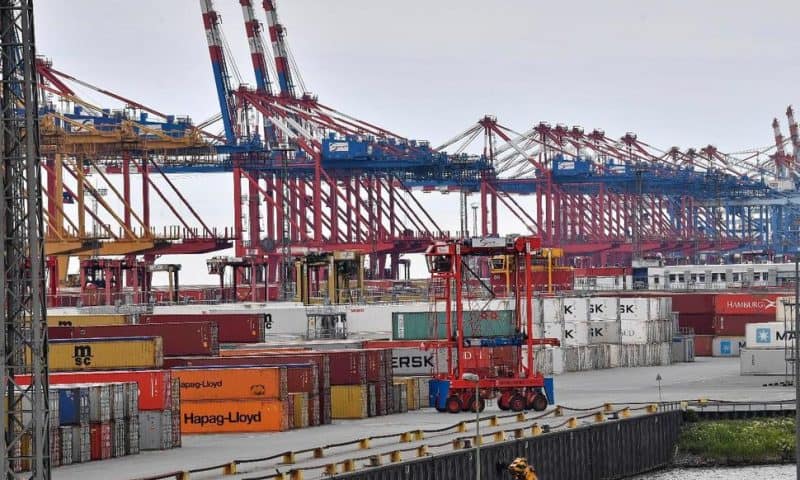German business confidence has picked up slightly after a five-month decline, but managers are more pessimistic about their outlook for the next half-year.
BERLIN — German business confidence has picked up slightly after a five-month decline, but managers are more pessimistic about their outlook for the next half-year. Analysts said the data did little to dispel fears Germany has entered a shallow recession.
The Ifo institute said Tuesday that its monthly confidence index edged up to 94.6 points in September from 94.3 in August.
That was marginally better than economists’ forecast of a rise to 94.5 and due entirely to managers’ brighter assessment of their current situation. Their expectations for the next six months unexpectedly worsened.
The survey is based on responses from some 9,000 firms in Germany, Europe’s biggest economy.
The economy contracted slightly in the April-June period and is considered likely to shrink again in the current quarter, putting it in a technical recession.
Carsten Brzeski, chief economist at ING Germany bank, said the result was “a breather but no relief.”
“The likelihood of another contraction of the German economy in the third quarter and hence a technical recession increases almost by the day,” he wrote in a note.
Germany publishes growth data for the third quarter on Nov. 14.
Brzeski said that “while a ‘light’ technical recession is not the end of the world for an economy which has been growing for more than ten years and has an unemployment rate at all-time lows, it is the lack of any signals of an imminent rebound which is more concerning.”
The German government has resisted calls to borrow and spend more on infrastructure to support economic growth. Finance Minister Olaf Scholz has submitted another balanced budget for 2020, while Chancellor Angela Merkel has made clear that a spending package on measures against global warming will not change the government’s balanced-budget policy.
The downturn in the economy means government spending has remained a topic of debate. European Central Bank President Mario Draghi has said that governments that can afford to spend more should play a leading role in getting the eurozone economy out of its period of weak growth.

